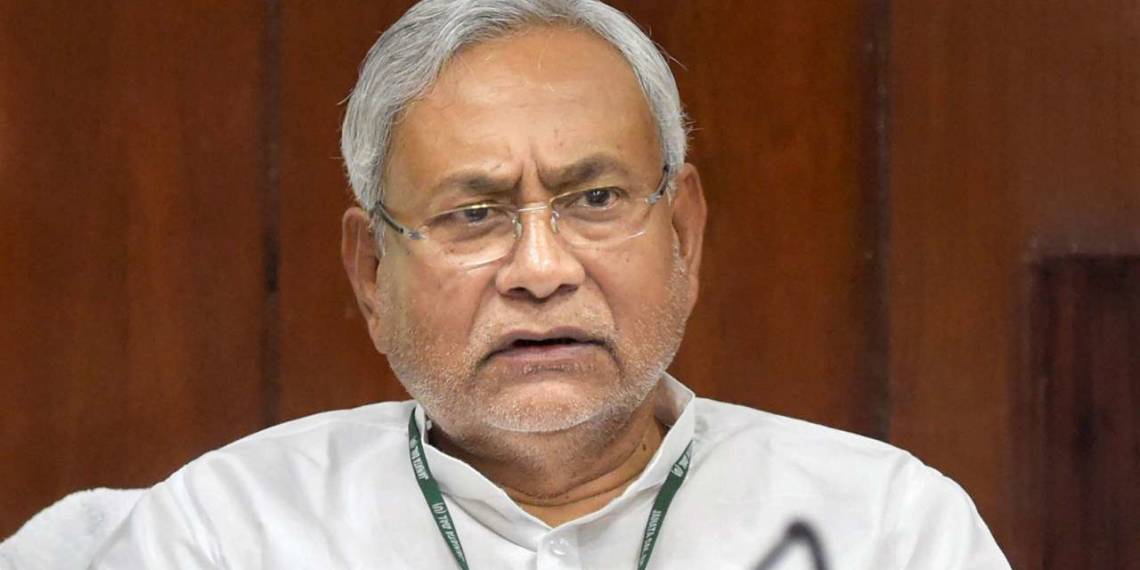In the long history of nation-states like India, any short-term phenomenon should be seen as a policy issue rather than a structural problem. If India was among the richest countries and largest economies of the world for thousands of years but became poor in the 19th and 20th century, it is a policy issue rather than a structural problem. But, the fascinating thing about Communists and socialists is that they hallucinate people to conceal their inability to deliver results. So, the Marxist economists blamed the low economic growth of India during the pre-liberalization period on Hinduism and called it Hindu Rate of growth. Taking a leaflet out of the Marxist playbook, Nitish Kumar now blames unavailability of Seacoast for the poverty of Bihar.
However, the economic history of Bihar constitutes some of the richest regions of the country historically. British economist Angus Madison who took up the Herculean task to calculate Historical GDP of countries found that India was the dominant economy for most of the known history of human civilization. And within India, the fertile Gangetic plains where the modern state of Bihar lies was the richest region of the country.
Patliputra- modern-day Patna- was the political and economic capital of the country for a long period. Nitish Kumar cries about Bihar not having a coastline on every passing day but does not draw a lesson from the port on Ganga river-led trade model which was one of the major reasons behind the prosperity of the region historically.
Today most of the inland trade between Delhi and Kolkata takes place through roads. Highways- national and state- have become an integral part of our economy. Given the size of the country, trade constitutes a large part of our economy and therefore, offering an alternative to road transport could improve the productivity of any region.
Bihar has more than 200 small and large rivers including Ganga which passes throughout the state to reach Bengal. Had the state government made efforts to develop waterways through Ganga and its tributaries, today Bihar would have been a major trade and commerce hub!
Moreover, the state banned alcohol four years ago as Nitish Kumar was trying to create a new vote bank out of women whose husband consumed alcohol after he fully capitalized Extremely Backward Caste (EBC) vote bank. Historically Patna has been India’s Las Vegas and has some of the finest Bars of the country. Despite the decline of the economic might of Bihar, excise on alcohol contributed around 4,000 crore rupees to the public exchequer in 2016- the year Nitish Kumar banned its consumption.
Nitish Kumar complains about Bihar being landlocked, but Las Vegas is also in the landlocked state of Nevada and still has established itself as the tourism and hospitality capital of the United States. Given the immense potential of tourism in Bihar and historic prowess of Patna as a booze capital, the city could have easily been established as the tourism and hospitality hub of India. But the implementation of these ideas requires political will power which excuses loving CM chair stricken Nitish Kumar does not have.
Billions of dollars of revenue and a large number of jobs which could have been generated from the tourism and hospitality industry have now shifted to neighbouring states like Uttar Pradesh, Jharkhand, and West Bengal.
Apart from tourism and hospitality, there is a range of service sector industries like Information Technology, IT-enabled services, education, research and innovation, and media which even remotely do not have anything to do with seacoast. All that Bengaluru and Hyderabad- two landlocked cities of the country- economy is known for could have been easily achieved in Patna.
But being true to his socialist credentials, Nitish Kumar jumps to excuses like unavailability of the seacoast to blame for the poverty of Bihar. The three decades of misgovernance, socialism, and corruption of his and his predecessor- Lalu Yadav- does not find a place among the reasons for poverty of the state.
Today Bihar is at the bottom of almost every socio-economic indicator from being the richest region of the country historically, but the intellectual media establishment finds merit in Nitish Kumar’s argument and seldom holds him accountable for the state’s poverty.

